
The Bangladesh Nationalist Party is a major political party in Bangladesh. Founded on 1 September 1978 by the late Bangladeshi president Ziaur Rahman, with a view of uniting people with a nationalist ideology, BNP later came out as one of the two most dominant parties in Bangladesh, along with its archrival Awami League. Initially being a big tent centrist party, it moved towards more right-wing politics later.

The Bangladesh Awami League, often simply called the Awami League or AL, is one of the major political parties in Bangladesh. The oldest existing political party in the country, Awami League successfully lead Bangladesh to the independence. One of the two most dominant parties in the country, along with it's archrival Bangladesh Nationalist Party, it has been the ruling party since 2009, and has since been described as authoritarian.

The National Awami Party (NAP), translated from Urdu to English as National People's Party, was the major left-wing political party in East and West Pakistan. It was founded in 1957 in Dhaka, erstwhile East Pakistan, by Abdul Hamid Khan Bhashani and Yar Mohammad Khan, through the merger of various leftist and progressive political groups in Pakistan. Commonly known as the NAP, it was a major opposition party to Pakistani military regimes for much of the late 1950s and mid-1960s. In 1967 the party split into two factions.
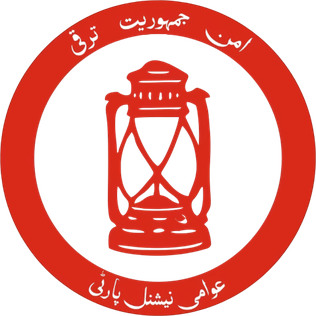
The Awami National Party is a Pashtun nationalist, secular and leftist political party in Pakistan. The party was founded by Abdul Wali Khan in 1986 and its current president is Asfandyar Wali Khan, grandson of Bacha Khan, with Mian Iftikhar Hussain serving as the Secretary-General. Part of the PPP-led cabinet of the Pakistani government during 2008−13, ANP's political position is considered left-wing, advocating for secularism, public sector government, and social egalitarianism.

Khan Abdul Wali Khan was a Pakistani democratic socialist politician who served as president of Awami National Party. Son of the prominent Pashtun nationalist leader Abdul Ghaffar Khan, Wali Khan was an activist and a writer against the British Raj like his father.
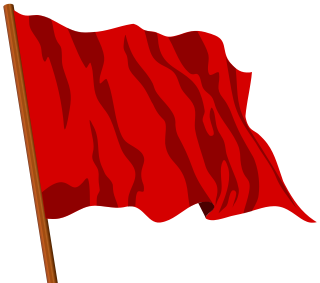
The Wali Khan faction of the National Awami Party was formed after the 1967 split in the original NAP between Maulana Bhashani and Abdul Wali Khan. The Wali Khan faction was later named National Awami Party (NAP) after the independence of Bangladesh.
Events from the year 1967 in Pakistan.
Mohammad Toaha was a language activist of the 1952 language movement and a prominent left-wing politician from Bangladesh.
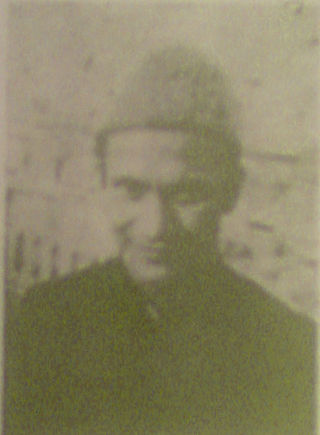
Shamsul Huq (1918–1965) was a Pakistani Bengali politician who led a parliamentary committee in the Constituent Assembly of Pakistan to advocate for the recognition of the Bengali language during the Language movement of the 1950s. He was also the first and third general secretary of the Awami League, which played a key role in Bengali nationalist movement in the 1950s and 1960s.

Ataur Rahman Khan was a Bangladeshi lawyer, politician and writer, and served as Chief Minister of East Pakistan from 1 September 1956 – March 1958, and as the Prime Minister of Bangladesh from 30 March 1984 to 9 July 1986.

The 1969 East Pakistan uprising was a democratic political uprising in East Pakistan. It was led by the students backed by various political parties such as the Awami League and National Awami Party and specially their student wings against Muhammad Ayub Khan, the president of Pakistan in protest of the military rule, political repressions, Agartala Conspiracy Case and the incarceration of Sheikh Mujibur Rahman and other Bengali nationalists.
The Khelafat Majlish, also spelt Khelafat Majlis, is a far-right Islamist political party in Bangladesh. The party was founded in Dhaka, the capital of Bangladesh, in 1989 by Deobandi scholar Azizul Haque along with Ahmad Abdul Qadir and former leaders of the National Awami Party and Tamaddun Majlish. Since its founding, it has only ever gained one seat in the country's National Parliament. The party split into two in 2005, with Azizul Haque's faction taking the name Bangladesh Khelafat Majlish.

Abdul Hamid Khan Bhashani, often shortened as Maulana Bhashani, was a Bengali politician. His political tenure spanned the British colonial India, Pakistan and Bangladesh periods. Maulana Bhashani was popularly known by the honorary title Mozlum Jananeta for his lifelong stance advocating for the poor. He gained nationwide mass popularity among the peasants and helped to build the East Pakistan Peasant Association. Owing to his political leaning to the left, often dubbed Islamic Socialism, he was also called 'The Red Maulana'. He is considered as one of the main pillars of Bangladeshi independence of 1971.
In Urdu language, Awami is the adjectival form for Awam, the Urdu language word for common people.
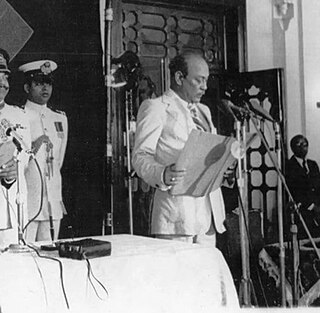
Mashiur Rahman, also known as Jadu Mia, was a senior minister, with the rank and status of prime minister in charge of the Ministry of Railways, Roads and Highways of Bangladesh from 29 June 1978 to 12 March 1979. He was the founder of Bangladesh Jatyiotabadi Dal, the whole process of transition to multi-party democracy was his brainchild. He named the party and the election symbol was given to the party from his party NAP. He also made the formal Declaration of Independence of Bangladesh from his party NAP, on the 23 March 1971, when Sheikh Mujib was still negotiating for the premiership of Pakistan with the military junta of Pakistan, not giving the formal declaration despite people's determination for a free, independent country.
Yar Mohammad Khan was one of the founders and the first treasurer of the Bangladesh Awami League, the main political party that eventually led Bangladesh's struggle for independence against the West Pakistan regime.

Awami League, known as Awami Muslim League before 1955, was an East Pakistan-based Pakistani political party founded by Huseyn Shaheed Suhrawardy in February 1950. Pir of Manki Sharif and Khan Ghulam Mohammad Khan from the North-West Frontier Province (NWFP) joined it soon afterwards.
Syed Altaf Hossain was a Bangladeshi politician who was a member of Parliament and Minister of Railway.
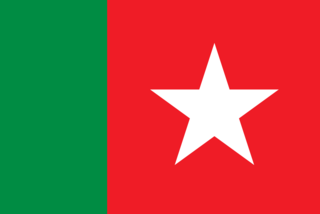
The Bangladesh National Awami Party, or National Awami Party (Muzaffar), is a left wing political party in Bangladesh.
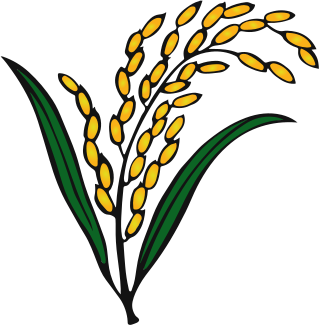
The Sheaf of Paddy is the political symbol of the Bangladesh Nationalist Party (BNP).














